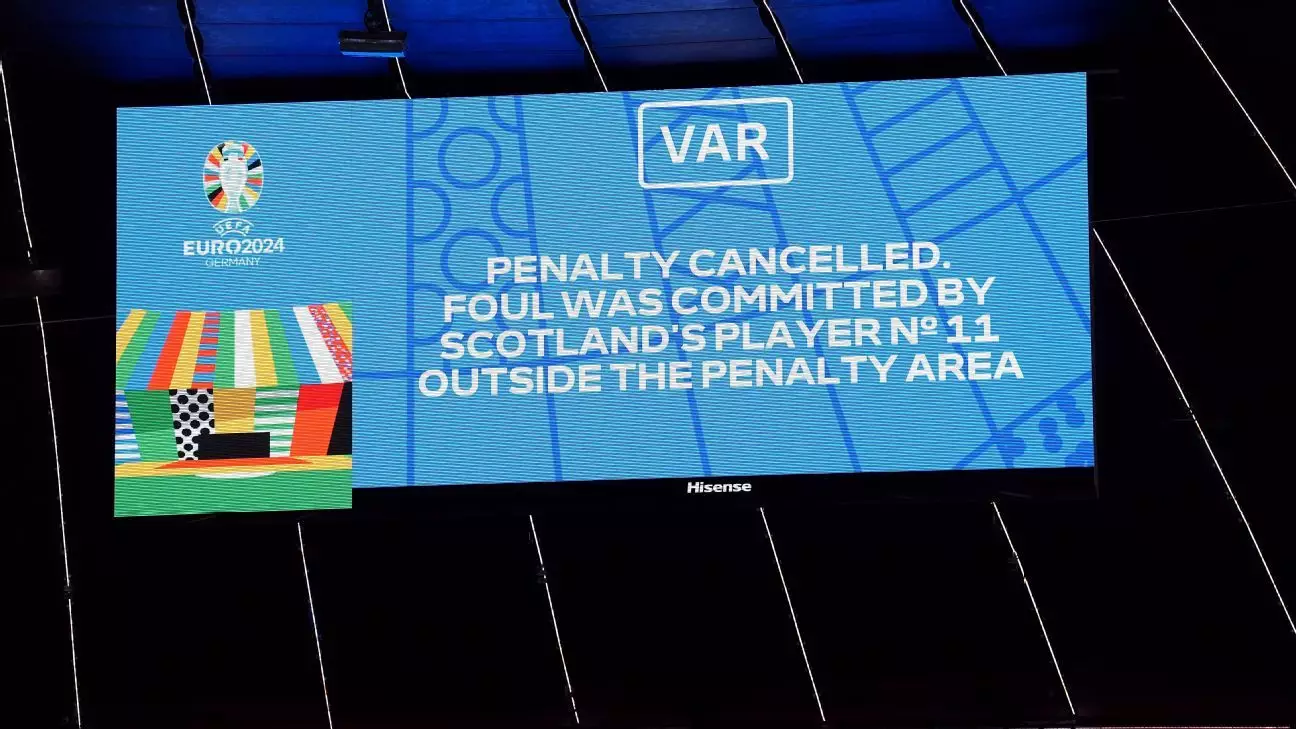In recent years, football has been undergoing profound changes, particularly in how matches are officiated. The introduction of technology has reshaped the landscape of the sport, attempting to enhance accuracy in decision-making while maintaining the essence of the game. Alongside this technological revolution is the significant emphasis on managing the dynamics between coaches, referees, and the game itself. The International Football Association Board (IFAB) has recognized the need for adaptations and innovations in officiating, leading to the approval of new experimentation protocols centered on the Football Video Support (FVS) system.
FVS is a revolutionary system that offers an alternative approach to the traditional Video Assistant Referee (VAR) framework. Unlike VAR, where video reviews are primarily directed by an official in a remote location, FVS empowers coaches to challenge specific on-field decisions—much like the challenge systems in other sports, such as American football. Under this model, coaches can initiate up to two challenges per match if they suspect an officiating error. This paradigm shift attempts to bridge the gap between referees and coaches while fostering a spirit of competitiveness on the field.
FVS trials are strategically designed for lower-tier leagues that may lack the financial resources for comprehensive VAR systems. Particularly noteworthy is its intended use in leagues with limited camera setups—typically four cameras or less. This tailored approach downplays the powerful technology often affiliated with top leagues and centers on making the game equitable for clubs with varying resources, thus democratizing the usage of video technology in football.
The successful implementation of FVS was evident during its recent trials at the U20 and U17 FIFA Women’s World Cups. Pierluigi Collina, Chairman of FIFA’s referees’ committee, emphasized the importance of these trials while asserting that results will be closely evaluated. Coaches and teams have expressed optimism regarding their involvement in this progressive endeavor, revealing a shared interest in trialing this new technology.
However, it is crucial to recognize that FVS does not replicate the functionality of VAR. Coaches must temper their expectations, given that the limited number of cameras significantly restricts the angles and clarity with which decisions can be reviewed. For instance, while VAR technology can analyze complex offside situations, FVS may only address clear-cut infringements due to its inherent limitations. This aspect makes the role of the on-field referee even more critical, as they must assess their own decisions without the benefit of a conclusive error report from video officials.
As FVS evolves, implications for the broader design of football governing laws also come into play. The ongoing trials address not only the offside rule but also additional key areas pertaining to goalkeeper conduct and communication protocols with referees. The IFAB has initiated discussions about potential reforms that may streamline officiating processes, including allowing only captains to engage directly with referees and implementing public announcements after lengthy VAR checks.
Moreover, the trials focusing on semi-automated offside technology and referee body cameras signal an innovative direction for officiating practices in football. By incorporating a variety of technological elements, the IFAB can enhance the sport’s transparency and accountability, possibly mitigating the frustrations fans and players sometimes experience with officiating decisions.
The world of football stands at a crossroads, navigating the balance between tradition and innovation. With the introduction of FVS and other trials, the IFAB is strategically fostering an environment conducive to experimentation and progress. While the challenges of implementing such systems won’t disappear overnight, the potential for a more equitable, transparent, and dynamic game becomes tantalizingly promising. The football community must remain vigilant, adaptive, and committed to evolving the sport without losing sight of its rich history and passion. The journey ahead will be telling; whether this ambitious initiative takes root may hinge upon acceptance and effective implementation by the various stakeholders involved.

